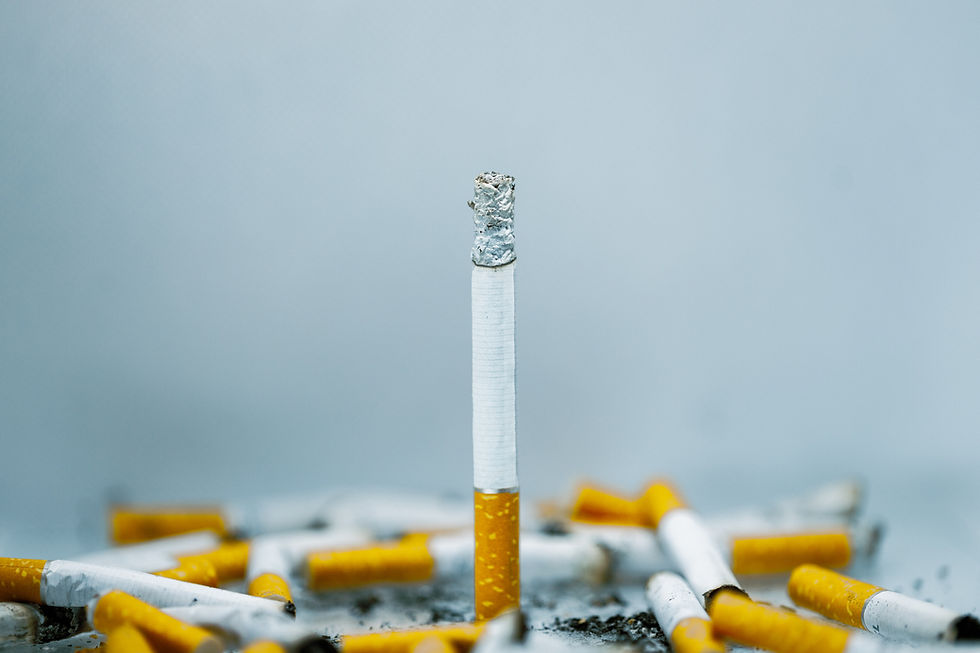The Dangers of Smoking on Oral Health: Understanding the Impact
- Ottawa Valley Family Dental
- Jul 12, 2023
- 2 min read
Updated: Jul 17, 2023

Smoking is a harmful habit that poses numerous health risks, and its detrimental effects extend to oral health as well. In this article, we will delve into the dangers of smoking on oral health and explore the impact it has on your teeth, gums, and overall oral well-being. Understanding these risks can serve as a strong motivation to quit smoking and take proactive steps toward improving your oral health.
Increased Risk of Gum Disease: Smokers are at a significantly higher risk of developing gum disease compared to non-smokers. The chemicals in tobacco smoke impair blood flow to the gums, weaken the immune system's response, and hinder the healing process. This makes smokers more susceptible to gum infections, gum recession, tooth loss, and other severe complications.
Tooth Discoloration and Bad Breath: Tobacco products contain numerous chemicals that stain teeth, leading to unsightly yellow or brown discoloration. The nicotine and tar present in cigarettes also contributes to persistent bad breath, which can be socially and professionally embarrassing. These cosmetic issues can negatively impact your self-esteem and confidence.
Delayed Healing after Dental Procedures: Smoking can impede the healing process after oral surgery or dental procedures. It restricts blood flow and oxygen supply to the affected area, making it harder for the tissues to heal properly. This can lead to complications, infections, and prolonged discomfort following dental treatments.
Oral Cancer: Perhaps the most severe consequence of smoking on oral health is the increased risk of oral cancer. Smokers are more likely to develop cancer in the mouth, lips, tongue, throat, and other oral tissues. Oral cancer can be life-threatening and may require extensive treatment, including surgery, radiation, and chemotherapy.
Gum Recession and Bone Loss: Smoking weakens the structures that support your teeth, including the gums and jawbone. It causes gum recession, where the gum tissue pulls away from the teeth, exposing the sensitive tooth roots. Additionally, smoking can lead to bone loss in the jaw, which compromises the stability and longevity of your teeth.
Understanding the dangers of smoking on oral health is crucial for individuals who are looking to protect their teeth and gums. Quitting smoking is the most effective way to minimize these risks and improve oral health. By quitting smoking, you can significantly reduce the chances of developing gum disease, tooth discoloration, bad breath, delayed healing, and even oral cancer. Your dental professional can provide support and resources to help you on your journey toward a smoke-free life and a healthier smile.

Kommentare